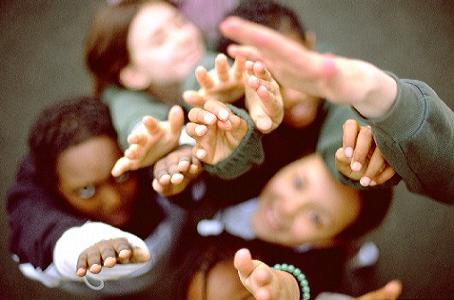
|
What is Solidarity Economy?
"Solidarity Economy" has gradually gained currency in today's international scene. This term was first coined in the annual World Social Forums (2001 to 2008), an open forum for global justice and alternative globalisation movements, and is rapidly diffused to several regions of the world including Latin America and EU.
Economic globalisation multiplies the number of the poor, violates human rights, and destroys the environment, whilst allowing the well-off minority to accumulate wealth. The problem with the present global situation is twofold. Whilst a restructuring of economic and political systems is taking place through marketisation, economic liberalisation and the replacement of welfare state with the small government, social and ecological disintegration is proportionately increasing, including natural disasters and climate change, the decline of local economies, and the rise of income disparity that can be characterised as "the market failure". This disequilibrium and precariousness in and of our growth economy-based societies impose even more burdens on the socially weak and prepare a potential, if not direct, explosion of wars and conflicts. Sadly, our world is far from a place where peace is established.
In facing this reality, "solidarity economy", which is in itself proposed by civil societies across the world, serves as a concept that endorses a civil monitoring of the "failure" of the market economy. One of the main objectives of solidarity economy is to supervise the transparency and accountability in the behaviours of the government as well as in the functioning of the market. The solidarity economy demands the government to carry out public policies and, so does it demand the private corporations to take social responsibility for their economic activities. Furthermore, it encourages various non-profit activities in civil society, including social and community enterprises, fair trade, the NPO activities, civic finance, local currencies and environmental protection. Thus, the solidarity economy serves as a platform for practising alternative socio-economic activities, chief among these are the revitalisation of local economies and the creation of employment through the democratisation of local communities; human capital training; gender equality; social inclusion as well as the strengthening of human rights of migrants and overseas residents, whose number is growing in the age of globalisation, and of the people who are often characterised as "the weak".
The First Asian Forum for Solidarity Economy in 2007
Solidarity economy has already produced a significant outcome in Latin America, Africa and EU. Here in Japan and other Asian countries as well, a number of corresponding activities have recently been organised and practised spontaneously. However, apart from the occasion of the World Social Forums, the substantive communication among the practitioners of solidarity economy??and also among those who are interested in it??is still absent in the Asian region. It is for this reason that the First Asian Forum for Solidarity Economy (AFSE) was inaugurated in Manila (the Philippines) in October 2007. Approximately 700 people took part in this event mainly from Asian countries. Its most remarkable outcome is that the AFSE permitted various solidarity economy activities in the Asian region to communicate with one another. The significance of this event is also attested by the fact that it led to the launching of a meeting between social entrepreneurs and social responsibility investors, which eventually marked a new dimension of solidarity economy. On the closing day of the AFSE 2007, it was decided to hold a second forum in Japan in 2009 and a third one in India in 2011.
Towards the Asian Forum for Solidarity Economy 2009 in Japan
The Asian Forum for Solidarity Economy 2009 was launched on 25 April 2008, to make the Second AFSE a real success. It aims to consolidate the communication between various experiences of Japanese solidarity economy activities as well as the collaboration with civil societies in other Asian countries, holding regular intermediate meetings.
On this occasion, we call for the participation of those who work for cooperatives, mutuality, labour unions, NPOs / NGOs, social enterprises, fair trade, civic finance, and other civil organisations. We also call for the participation of local community business workers as well as any groups and individuals who are interested in non-profit activities. The Second AFSE needs your active participations and commitment in developing solidarity economy not only in Japan and Asia but also on the global scale.
To those who join us, we invite you to attend the eForum meetingf which discusses the framework for carrying out the Second AFSE. We will also inform you of various events such as elearning journeyf??field trips to see the experiment of Japanese solidarity economy activities?? and estudy groupsf, i.e. the studies on Japanese and overseas theories and practices of solidarity economy. We also wish to organise these events together. In particular, we are willing to invite some of you as lecturers to give a talk about your engagement in solidarity economy activities and to exchange your experiences with others.
Please contact our office (see below), either by phone, fax or e-mail. We also welcome any enquiries and volunteers.
20th, August, 2008
Yoko Kitazawa
Pacific Asia Resource Center/Journalist
Jun Nishikawa
Professor emeritus, Waseda University
Reiko Inoue
President, PARCIC ( PARC Interpeoples' Cooperation)
Katsumi Yokota
Director, Instutite for Participative Democracy
Hideo Ishizuka
INHCC(Institute of Nonprofit Health care Cooperation)
Junichi Yamamoto
Professor, Keio University
Yoichi Koike
Board member, PARC(Pacific Asia Resource Cener)
Rui Izumi
Professor, Senshu Univesity
Kinhide Mushakoji
Prof., Director, Center for Asia Pacific. Partners Osaka University of Economics and Law
Shigeki Maruyama
Instutite for Participative Democracy
Kyoko Matagi
Chief director,Human support network Atsugi
Mayumi Gunji
Chief director,WE21Japan
Eiko Mukaida
Chief director,Women's Citizen's Credit (WCC)
|
